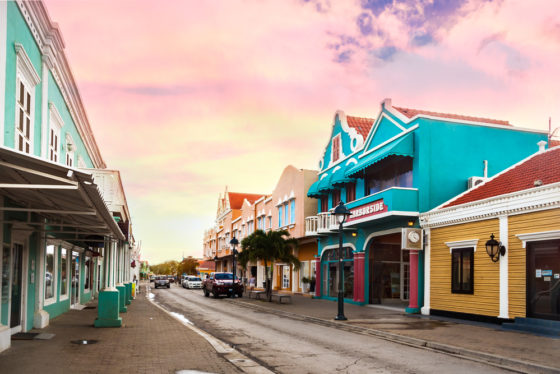Bonaire consumer organisation takes Dutch state to court over ‘grinding poverty’


A consumer organisation on Bonaire is taking the Dutch state to court for not doing enough to remedy the island’s endemic poverty.
Bonaire, Sint Eustatius and Saba (the BES islands) together form the Caribbean Netherlands. In 2010 the islands, part of the former colony of the Dutch Antilles, were given the status of a Dutch municipality, meaning they are jointly ruled by the island administration and the Dutch government.
The consumers’ association Unkobon, in conjunction with an Amsterdam-based law firm, says the social affairs ministry’s latest annual report on the quality of life in Bonaire shows the Dutch government has been neglecting its responsibility.
There are no official poverty statistics for the islands, but reports of ‘widespread poverty’ on all three islands dating back to 2015 and a report by the National Ombudsman from 2019 signalling ‘grinding poverty’ have not led to any significant action by the government, consumer organisation Unkobon claims.
Most of the island’s population of some 28,000 live in homes with concrete floors and corrugated iron roofs, pastor Marc Hooijschuur told the NRC.
Dutch civil servants visiting the island always say they understand local concerns but when they leave the problems faced by islanders remain, Hooijschuur said.
‘We want to force the government to provide a decent standard of living to its Dutch citizens in the Caribbean,’ Unkobon spokesman Wietze Koopman told the paper.
Koopman (71), who retired to Bonaire after working for the Netherlands tax office, said a new tax system introduced in 2011 caused prices to rise steeply, the main reason for the persistent poverty on the island.
Income levels are low, with an average of 31,900 dollar (€25,900) per household in 2020 compared to €32,400 in the rest of the Netherlands. With a pot of peanut butter costing around 10 dollars, the islanders’ money doesn’t go far, Koopman said.
The Dutch government’s step by step approach towards a social minimum, which started in 2019, is too slow, Koopman said, and if anything the average income on the island has dropped below the initial norm.
Court cases such as these are no exception, professor of constitutional law Douwe Jan Elzinga said, and most do not achieve anything, but this one might bet he exception. ‘You will have to have a good excuse to flout article 1 of the constitution (all Dutch citizens should be treated equally),’ he said.
In a reaction, a spokesman for poverty minister Carola Schouten said the minister ‘is doing what is necessary to combat poverty in Bonaire. To increase the minimum wage too quickly and by too much would have a negative impact in the economy in the region. Price drops are also a step by step process,’ he told the NRC.
No date for the case has been set so far.
Thank you for donating to DutchNews.nl.
We could not provide the Dutch News service, and keep it free of charge, without the generous support of our readers. Your donations allow us to report on issues you tell us matter, and provide you with a summary of the most important Dutch news each day.
Make a donation